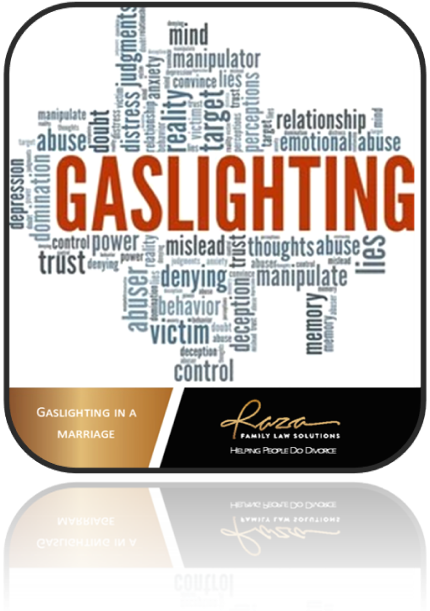Gaslighting in a marriage is a form of emotional abuse where one partner tries to manipulate the other into questioning their own thoughts, feelings, and reality. This can have serious consequences and, in some cases, may contribute to the breakdown of the marriage. Here are ways in which gaslighting can contribute to divorce:
- Erosion of Self-Esteem: Gaslighting often involves undermining the victim’s self-esteem. Constantly questioning one’s perceptions and feelings can lead to a diminished sense of self-worth and confidence.
- Isolation: Gaslighting can result in the victim feeling isolated and alone. The manipulator may intentionally isolate their partner from friends and family, making it harder for the victim to seek support and perspective from others.
- Loss of Trust: Gaslighting erodes trust within the relationship. The victim may begin to doubt the intentions and honesty of their partner, which can lead to a breakdown of trust.
- Communication Breakdown: Effective communication is crucial in a marriage. Gaslighting often involves distorted communication patterns, making it difficult for the couple to express their needs, feelings, and concerns openly.
- Psychological Distress: Victims of gaslighting may experience anxiety, depression, and other mental health issues. The cumulative impact of emotional abuse can lead to severe psychological distress, making it challenging to maintain a healthy relationship.
- Escalation of Conflict: Gaslighting can escalate conflicts within the marriage. The constant manipulation and invalidation of the victim’s experiences may lead to arguments and disagreements that become increasingly difficult to resolve.
- Physical Health Impact: Prolonged exposure to emotional abuse can have physical health consequences. Stress and anxiety related to gaslighting can contribute to various health issues, potentially impacting the overall well-being of the individuals involved.
- Legal Consequences: In extreme cases, where emotional abuse is severe, it may contribute to the grounds for divorce. Legal systems in some jurisdictions recognize emotional abuse as a valid reason for divorce, especially if it has led to significant harm or detriment.
It’s important to note that gaslighting is a serious issue, and seeking professional help, such as therapy or counseling, can be crucial for individuals in such situations. If you or someone you know is experiencing gaslighting or emotional abuse, consider reaching out to a mental health professional or a domestic violence hotline for support.
At Raza Family Law Solutions, we practice family law effectively guiding clients through prenuptial and post nuptial agreements, dissolution of marriage, modifications of prior judgments, and resolving child custody disputes. We also help families take a different approach to divorce with mediation and collaborative work. Contact us for a consultation at (314) 314-5505.




